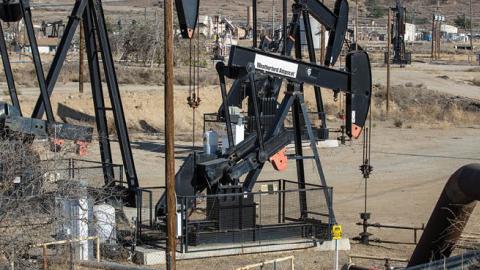It is not a revelation to discover that the Biden administration intends to phase out the U.S. oil and gas industry. But it is astonishing to see how quickly it is moving to accomplish this, while sending production abroad to producers in Russia and Middle Eastern nations whose commitment to reduce greenhouse gases is at best questionable.
The most recent action, revealed on August 11, was to implore OPEC and fellow traveler Russia to increase their production as demand in fast recovering economies makes up the shortfalls caused by the pandemic. Polling data in the U.S. about inflation caused in no small part by rising gasoline prices undoubtedly is a prime mover behind the administration request. These are the same producers who just a few short months ago (in early 2020) flooded declining markets in an effort to destroy the economics of U.S. shale oil production. The Biden team also has given a boost to Russian gas production by backing off on attempts to derail the Nord Stream pipeline into Germany, which increases European dependence on the heavily polluting Russian extraction industry. U.S. liquified natural gas producers had hope and reasonable expectations of building capacity to supply European absent the deal with Russia.
The Biden team got off to a fast start in its assault on U.S. and North American oil production by blocking the Keystone XL Pipeline project, which would have contributed to jobs in the construction, refining and transportation sectors in the United States. The administration also has put any new Alaskan production on permanent hold and frozen any new exploration and development auctions in the lower 48 states and offshore.
As part of its most recent initiative, the White House also asked new Federal Trade Commission Chair Lena Khan to spring into action to “monitor industry prices, review merger and acquisitions … and investigate market manipulation and anticompetition practices…” in the U.S. oil industry. The implication of the White House directive is that the industry has nefariously raised gasoline prices above levels commensurate with crude prices.
The sum total of these actions is to discourage any new expansion of U.S. production and any attempt to regain the levels of production achieved by 2019, when the United States became a major exporter of crude oil and refined products and of natural gas. Facing this juggernaut of regulatory action and threats of antitrust sanctions, along with pressure put on financial institutions to exit the fossil fuel credit markets, it is no wonder that crude oil production levels are frozen and remain 15 percent below those just before the pandemic. U.S. imports of crude oil from OPEC countries have already nearly doubled from levels before the pandemic and overall imports have reached levels not seen since well before the pandemic.
It is worth noting that manufacturing and construction jobs, which the administration purports to put at the center of its trade and economic policies, remain about five percent below the peak Trump era level, despite a full recovery. Eliminating oilpatch jobs and hoping to replace them with green jobs has not helped the project. Oil and gas construction and extraction jobs are 30 percent below the peak of the oil shale boom. The average wages for production workers in these fields are $66,000 and for petroleum engineers over $150,000. There are about fives times the number of workers in this industry compared to the solar industry, in no small part because China dominates the production of solar products. The U.S. chemicals industry, directly employing over 500,000 workers and exporting well over $120 billion annually, also depends on crude oil and natural gas for feedstock and enjoys a competitive advantage due to adequate domestic supplies and lower pricing due to the shale revolution. This industry too is threatened by the assault on domestic production.
If the Biden administration is serious about creating more good paying jobs in the United States and reducing dependence on unreliable trade partners, while transitioning away from the fossil fuel industry, it would revoke the astonishing request to outsource production of oil and gas to Middle Eastern and Russian producers. It would also arrest its regulatory assault on the U.S. industry. Inflation remains a problem, both economic and political, but trading a temporary respite for long-term dependence on foreign sources and job losses is a losing proposition.
Read in Forbes

















